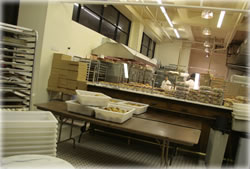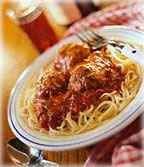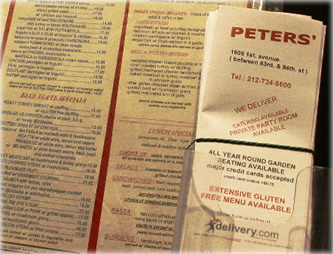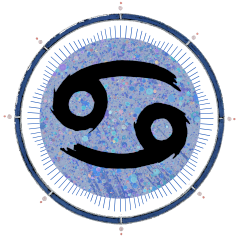Dear Friend and Reader:

ONE DAY last month, standing in a convenience store in northern Belgium, I decided to join the Nestlé boycott. I’ve always tried to avoid Nestlé products, but it’s difficult in Europe because they have such vast market share. I was standing in the store, wanting some chocolate, looking at a lot of Nestlé options. Then I decided to draw the line right there, and picked some gourmet chocolate off the shelf.
I got home and read the ingredients on the chocolate I had purchased, and noticed that wheat flour was on the list. Because I have celiac, I can’t eat anything containing wheat or several other grains that contain a protein called gliadin, which is part of gluten. Gluten makes it possible for bread to rise and hold its shape. It provides that delightful rubbery goodness that wheat is famous for. It’s the stuff in dough that makes it stretchy, for example giving pizza dough the property of being able to stretch thin and still be strong enough to hold the sauce and cheese.
Vegetarians and macrobiotics sometimes eat something called seitan, or “wheat meat” — an extremely convincing, versatile meat substitute that is pure gluten. It is made by taking ordinary wheat dough and rinsing out all the starch.
Gluten is very useful, and it’s difficult to digest. It’s also the probable main culprit in celiac, an autoimmune disease that can damage the small intestines and makes it difficult for people with the illness to absorb nutrients from other food. Celiac is not an allergy; it’s a genetically transmitted immune disorder that affects one in 100 people, often of northern European descent. Most cases go undiagnosed. Gliadin is found in wheat, old forms of wheat such as spelt and Kamut, rye, barley and malt, and probably oats.
Immediate symptoms include unpleasant diarrhea, bloating, flatulence and malnutrition. There are also mental symptoms that can be severe, including both long-term and short-term depression. One’s immune system, which has a lot to do with the state of awareness, feels distinctly out of whack. Kids can suffer from something called failure to thrive, which is the result of their nutrients not being absorbed properly. When I was a year old, I looked like a refugee kid who had not eaten in months.
My mother, with the help of my grandmother Mary and Dr. Benjamin Spock’s Baby and Child Care, figured out what the problem was. Doctors gave her a hard time, but she insisted, and she was right. She spent most of my early childhood fending off what she calls “cookie pushers” — relatives and innocent bystanders who for some reason loved to hand me bread, crackers and baked treats. One alcoholic uncle loved to give me beer; he somehow lived to tell the story. Forty years later, she is still incredulous at their stupidity: no matter how many times she explained it, some relatives just did not get it. They also loved to debate which side of the family was to blame, but celiac is passed by a double recessive gene and must therefore come from both sides of the family.

Priya Kale.
Once you and your doctor figure out that you have celiac, then the fun really begins: your life becomes a constant obstacle course of avoiding products containing wheat and related grains. What you soon find out is that wheat is ubiquitous, and some of its cousins do a pretty good job. Once you get rid of the basics — bread, cakes, cookies, and most other baked goods, then it’s time to figure out where wheat and its gliadin friends are hidden in the food supply.
Beer, for example, is made of barley; that is a gliadin grain. Beer is easy to identify, but not so easy for some people to avoid. I am lucky — I don’t like the stuff. (Distilled spirits don’t contain gliadin even if they are made from wheat, rye or malt, because it’s taken out in the distillation process.)
Many sausages and frankfurters have wheat filler or extender; you have to read the package, which is often difficult if you’re eating in a restaurant.
Anything deep-fried is suspect; most of it is coated in flour, batter or bread crumbs. As a result, anything else that goes through the deep-fryer is likely to be contaminated; if French fries don’t already have wheat in them, they may be picking it up from the frying oil.
Next come sauces, gravies and soups. Most of them have some wheat flour sprinkled in. It makes them thick and creamy, and it’s completely unnecessary from a culinary standpoint. Most chefs, except for the very best, will use flour routinely in their sauces and soups. All Cajun food is suspect because of roux, a mix of flour and oil that is the basis of all soups and sauces in that genre of cooking.
Then there is anything that comes out of a package. Wheat and its derivatives are hidden in hundreds of forms, and in thousands of places, ending up in salad dressings, prepared sauces, potato chips and most other junk foods, and even in soy sauce.
Veggie burgers are famous for having wheat: it usually comes in the form of seitan, sometimes identified as wheat gluten and sometimes by another name (modified vegetable protein, for example).
As you are starting to figure out, this turns eating into a constant yoga. It’s easy enough if you make all your meals at home. I happen to live on the road, so I eat out a lot. Every time I sit down in a restaurant, I have the same basic discussion. I have to recruit the assistance of the dining room staff, and get them to be my lawyer in the kitchen. If they get it, that is. I don’t hesitate to ask to see the formula for any particular dish; I have asked that the chef be called at 10 o’clock at night. I presume I have the right to eat safely.
In some ways my life is an ongoing survey of food awareness in the world. You would be surprised how many people don’t know that bread and pasta are made from wheat and flour. I have stopped being surprised, and have resigned myself to the fact that about 80% of the population has no idea what it’s putting in its mouth.
I live in Europe, so half the time this discussion is going on in French. The French have some special properties. For one thing, they are cookie pushers like few others. French food is laced with flour. They love sauces, and since everyone can’t be a great chef, most restaurants must content themselves with shades of mediocre. A properly trained French chef would no sooner put wheat flour in a sauce than you would put shoe polish in one, but unfortunately there are not so many of these elites.
In the United States, most people decide I’m trying to lose weight. I am not prone to violence, but there came a point where if one more server asked me if I was on the Atkins diet, I thought I was going to turn the table over.
Or, I explain the dietary restrictions I have: no breads, breaded food or sauces or gravies containing wheat; and the server asks me if I’m a vegetarian. Well, wheat rhymes with meat, but they are different. Unless that meat is seitan.
Then there are the times when you negotiate everything being wheat and flour free; you negotiate and stipulate everything; everyone agrees and is happy to oblige; and then dinner comes out with a big piece of bread soaking in the middle of the plate. It becomes obvious that there really is such a thing as unconscious, and that it often involves food.

Soy sauce was an interesting discovery. One of the ways you can avoid wheat is to eat Asian food, but you have to be careful because soy sauce is brewed with wheat. I don’t know how many parts per million of gliadin end up in soy sauce, but I prefer to avoid it. I will either bring my own gluten-free soy sauce to sushi dinners, or a bottle of Bragg’s Liquid Aminos; but can’t tell you how many of these not-so-cheap condiments I’ve left behind at Asian restaurants. Note that many lower-quality Chinese places recycle their old deep-fryer oil into other dishes; this would spread gluten into places you would never imagine have it, such as sautéed vegetables.
In my neighborhood in Brussels, one sympathetic Chinese restaurant keeps a bottle of gluten-free soy sauce on hand. I’ve found that the best bet is to eat in Thai restaurants, which use other things to thicken their soups and sauces, and they don’t use much soy sauce. Thai chefs seem to be particularly impeccable when it comes to knowing their ingredients.
The good side to all of this is that by avoiding wheat, its cousins and its derivatives, you eliminate nearly all of the foods in the Western diet that are worst for us, the most fattening and the least nutritious. The difficult side is that partaking in food is one of the most important social activities that we humans have. When a person is on a restrictive diet, it comes with a social stigma of not being able to eat what other people are eating. I remind my friends about this; I appreciate that they sometimes come up with gluten-free options at a dinner, but that is different than being able to eat the same food as everyone else. Mind you, I grew up in an Italian household, eating rice when everyone else ate spaghetti.
Once you figure out all the ins and outs of restaurants and packaged foods, and figure out who your friends and enemies are, and which foods you can and cannot eat, and make notes of which waiters and chefs will cooperate and which will not, there are still surprises. A Canadian writer informed me last week that the gluten theory of celiac, which has 100% acceptance by the mainstream medical establishment and most of the alternative medical establishment, may be entirely incorrect.
“Gluten intolerance is not really enough to explain celiac disease, since symptoms do not disappear when gluten is eliminated from the diet,” writes Victoria Anisman-Reiner, a Toronto-based holistic-health writer. “In some cases, avoiding gluten restores health and improves digestive symptoms. However, according to [Elaine] Gottschall, it does not result in healing of the intestinal wall.”
She refers her readers to a book called Breaking the Vicious Cycle: Intestinal Health Through Diet, by Elaine Gottschall. The author presents a new model for healing digestive disorders including celiac, with an approach called the “specific carbohydrate diet” that calls for eliminating most carbohydrates and many milk products, along with wheat gluten.

This is like discovering your chocolate bar potentially has wheat in it, but on a very grand scale. Unless one lives on a diet of steaks and crouton-free salads, it’s nearly impossible to follow this diet and eat outside your house. Note that I have not verified this against other sources.
It is difficult to live like this and not see all food as potential poison. But that would actually be a good idea: at this time in history, all food is potential poison. Whether you’re talking about the additives that go in, such as dyes and preservatives, or the inadvertent toxins such as the mercury in your tuna fish and the phthlate plasticizers in your bottled water, we do have a food safety issue. I shudder to think of how you’re going to raise awareness among those who don’t know that pasta is made from wheat. How would you convince someone who smokes and drinks diet cola not to microwave in plastic?
All of this has made me uniquely suited to write about toxins that are everywhere in the world — dioxins and PCBs. Sometimes I wonder how I have the strength to face an issue that is so widespread, that is invisible and that few people actually care about — and I finally figured out that I’ve been facing it all my life. I already have to regard every morsel of food as a suspected poison.
This is true even when I’m in the very best company. Recently, I was a guest at a dinner party, and our chef was the owner of one of the most famous gluten-free restaurants in the city, which serves little $18 pizzas and recently got a rave in The New York Times. He knew I was celiac because that’s how I found out what restaurant he owned. When we sat down at the table, dinner was impeccable: except for the gravy, which was made with flour.
Yours truly,
![]()

Weekly Horoscope for Friday, August 3, 2007, #674 – By ERIC FRANCIS
Aries (March 20-April 19)
When you look back on everything you’ve reassessed about your life recently, you may come to a completely different conclusion than you were expecting. The facts all seemed to point in one direction, though the doubts of one person whose opinion you value have influenced you more than you may recognize. Your new assessment is likely to point to easier solutions than you imagined possible, and will at least remind you that price is not the only measure of value. What’s truly important to you has no price and appears to be worth taking a significant risk on.
Taurus (April 19-May 20)
If you’re involved in some kind of clash over values, you may want to investigate whether this is really a crisis within yourself that you’re seeing unfold as a story in the world around you. You’ve learned a lot about yourself and what you want. Mars in your sign has given a whole new view of what is possible, based mainly on your belief in what is possible. Yet Venus retrograde may be leading you to wonder whether you really want to take the kind of chances that you’ve been enticing yourself with. Bear in mind that life is more a process of going forward than going in reverse.
Gemini (May 20-June 21)
You’ve been uneasy about something, and will soon discover that you’ve been experiencing an energy overload. The pressure has been pushing up the volume on your imagination, which means on both your hottest fantasies and your worst fears. It often seems that one is at the expense of another, but that situation is the predictable result of being divided against yourself. In any situation where you seem to want two conflicting outcomes, try working from a different premise: you know what is right for you. You not only know what you want, you are what you want.
Cancer (June 21-July 22)
You have every reason to feel safe, regardless of a number of uncertainties that are looming in your future. Mars entering your sensitive 12th house this week may not feel comforting, but many other factors suggest that this is the time to take your financial goals seriously. The way to do that is to feel good about yourself. For about 95% of humanity, this is easier said than done. But you have astonishing support right now, and you’re doing a good job when it comes to paying your way through life no matter what you may think in your less-secure moments. The better you feel, the more opportunities will come to you.
Leo (July 22-Aug. 23)
You know who you are, but it’s funny how you keep finding out. Your next discovery pertains to who you are not, and involves a relationship to a financial limit you’re currently experiencing. Pay attention and you’ll see that it’s a problem you’ve already solved. It only appears to be a new problem because you’re looking from a new perspective. This may trick you one more time but probably not twice. Anyway, if you’ve solved a problem then it has no power over you. Don’t be the victim of your own psychology. Stick to reality; at the moment, it’s easier and more profitable. [NOTE, the Leo Birthday Report was published Monday, Here is the link.]
Virgo (Aug. 23-Sep. 22)
You may think you have no clue what’s going on. It’s almost like you’re sitting in the middle of a concert inside a tent. You can hear the event around you, you know there are people out there, but you can’t quite see things. First, remember that something unusual is happening in the world around you. Then, if there are limits in your perception of your outer environment, look to your inner world for clues. What seems at one moment like a study in psychology or psychological baggage soon enough evolves into an opportunity to participate and take action. You won’t need to go looking for anyone or anything — a situation that has been a background priority for a while makes itself known to you, in a practical way.
Libra (Sep. 22-Oct. 23)
You may provoke someone unwittingly, or find yourself in a situation where you don’t quite understand the sexual dynamics involved or how you got mixed up in them. Here is how I would explain it in the fictional account of your life known as astrology. You need to push yourself to grow in certain directions that allow you to squirm out of or otherwise break free from some personal hang-ups. To do this, you need the support or at least involvement of someone who does not have those particular hang-ups, which means free of a particular kind of moralism. This plan will probably work brilliantly at pointing you directly at your own self-repressive tendencies, and then help you finally break loose.
Scorpio (Oct. 23-Nov. 22)
Please think like a chess player — that is, about three moves ahead of the game. Look at the psychological tendencies of someone vital to your situation, look at the direction in which their thoughts are currently trending, and imagine the predictable response they will have to your influences. There is no guarantee that things will shake out like you’re anticipating, but there is a good possibility. The situation may feel random, but it’s anything but random, particularly in the way that everyone involved manages to get exactly what they need. You at least can admit that need; others may need to discover it.
Sagittarius (Nov. 22-Dec. 22)
Your continued emphasis on a long-term goal is about to get an unexpected result. Of course, the results we want and benefit from most are rarely the ones we actually work toward or plan for. This is particularly gratifying where some aspect of social justice is concerned. What occurs next and indeed over the next few weeks may seem premature or at least like developments are arriving before they are fully ready. What you’re experiencing is, however, at once a breakthrough and a setup for the more impressive results that will take shape over the next couple of months.
Capricorn (Dec. 22-Jan. 20)
Today and for the next few days, a stone wall turns into the door to another world. An impossible situation works itself out or suddenly becomes available for a discussion; an opportunity for change makes itself known where there seemed to be no hope in the past. A financial liability becomes an asset. How is any of this possible? Well, without reciting the long list of astrological factors now working in your favor (but most especially Saturn trine Pluto), one thing we can count on in the world is growth. Human beings, despite their best efforts to the contrary, are creatures for whom progress is inevitable. This holds for you and key people you love and care about.
Aquarius (Jan. 20-Feb. 19)
We have all heard that there are no chance encounters, and this is an appealing prospect as long as those encounters are a) helpful and b) show up when we need them. It would appear that over the next few days, and indeed over the next two weeks, both of those factors will be working in your favor. It will help greatly if you take every inconvenience as a sign that something productive is happening, and if you never tell yourself something is too good to be true. The stories we tell ourselves about people and our relationships with them are rarely the ones that are the most meaningful. The truth, when it reveals itself, gets that distinction.
Pisces (Feb. 19-March 20)
Circumstances are now conspiring to light the fire of progress under your ass. Avoid conflicts by remembering that you and everyone else usually have two opinions about everything, and two entirely different emotional orientations. Allow yourself and everyone else the space to live in two worlds at once, and the one world you truly inhabit will seem like a much safer place. Bear in mind that during the coming days and weeks, you will need to vent your energies in positive ways, which means ways that are pleasurable to you and do minimal harm to your environment. The more energy you express, the more you will have.



